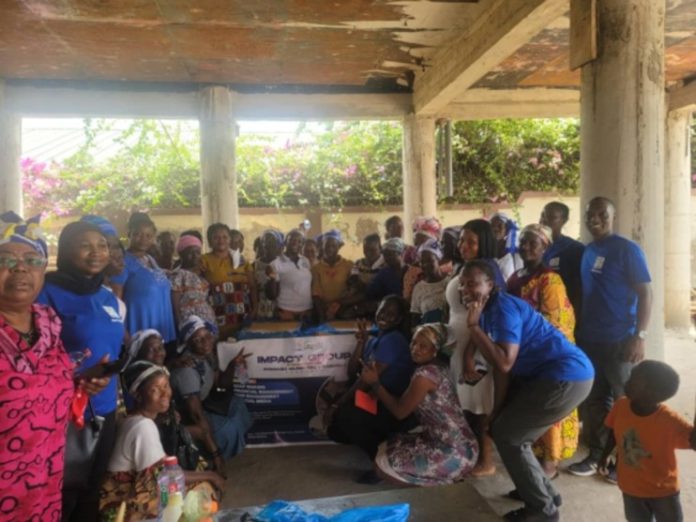Sixty women residing in the Ayawaso West Municipal Assembly Area of Accra, Ghana, have recently reaped the rewards of a two-day skills development project.
These women, predominantly low-income earners hailing from areas such as Abelemkpe, Pig Farm, and Newtown, were the focus of the initiative dubbed; “Learn a Skill Project” implemented by the Impact Group. Comprising graduate students pursuing MSc. Development Management at the Kwame Nkrumah University of Science and Technology, the Impact Group spearheaded this endeavour as part of the Social Entrepreneurship and Philanthropy (SEaP) Programme.
Working in collaboration with the Ayawaso West Municipal Assembly and the Ayawaso West Business Resource Centre, the Impact Group ensured the success of the initiative by mobilizing beneficiaries and providing resource persons to facilitate training sessions.
The project’s framework was rooted in the principles of economic empowerment. Against the backdrop of prevalent economic challenges in Ghana, which have rendered low-income earners particularly susceptible to social exclusion and financial dependency, this initiative aims to enhance the quality of life for its beneficiaries.
By equipping them with valuable skills, it endeavours to foster self-sufficiency and address basic needs, thereby contributing directly to Ghana’s pursuit of Sustainable Development Goals 1 (No Poverty), 2 (Zero Hunger), and 8 (Decent Work and Economic Growth), among others.
Beneficiaries underwent comprehensive training encompassing technical and practical aspects of bar soap making, a product in high demand for household use. Furthermore, they received instruction in soft skills such as essential business management principles, financial management, personal development, and digital literacy. Information about financial and technical support programs offered by both the government and development organizations was also provided.
To facilitate a smooth transition into entrepreneurship, three startup kits containing bar soap-making machines and chemical inputs were distributed among select beneficiaries, enabling them to commence production immediately after completing the training.
Among the recipients was Kassim Saudatu, a mother of a child with a disability, who expressed gratitude for the opportunity: “I appreciate the skills I have learned and, on top of that, the startup kit. As an unemployed person, I look forward to starting and growing my own soap making business, so that I can take care of myself and my child.”
The leader of Impact Group, Jenifer Ocran expressed profound satisfaction at the positive impact of the skills development project on the lives of the beneficiaries.
“Our mission with this initiative has always been to empower individuals with the tools they need to create sustainable livelihoods,” she stated. “Seeing the enthusiasm and determination of these women to seize the opportunities presented to them is truly inspiring. We extend our gratitude to our partners, the Ayawaso West Municipal Assembly and the Ayawaso West Business Resource Centre, whose support has been invaluable in realizing this endeavour.”
The Social Entrepreneurship and Philanthropy (SEaP) Programme, initiated by Kwame Nkrumah University in Ghana in 2017, forms an integral component of the Master’s Degree in Development Management curriculum. Rooted in the ethos of societal responsibility, SEaP emphasizes the imperative for development practitioners to actively contribute to community empowerment through impactful projects.
Since its inception, the SEaP Programme at KNUST has demonstrated a steadfast commitment to effecting positive change. The programme, currently under the stewardship of Dr. Victoria Mensah Nyamadi has accomplished notable endeavors including the renovation of a three-unit classroom block at Ebenezer Hills Basic ‘1’ School in Sebrebor, tree planting in Likpe Bakua, Todome, and Mate communities, and the provision of training to 300 students from Poasi-New Takoradi in the production of reusable sanitary pads and detergents.
These initiatives underscore the program’s dedication to fostering sustainable development and enhancing the well-being of communities across Ghana.
READ ALSO:

